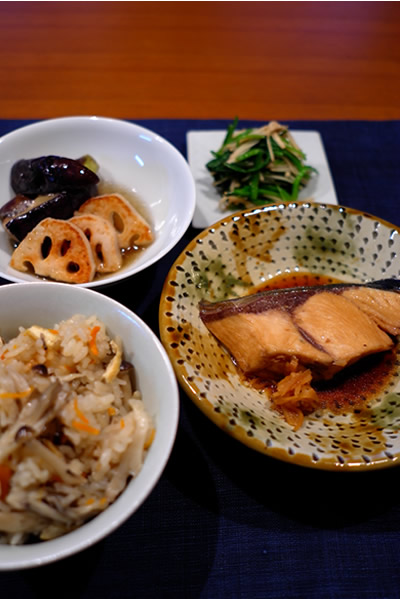My CIP, teaching at a middle school, was quite enjoyable. I happened to be lucky: out of the three who taught at the middle school, I had the least amount of canceled classes, so I got to see the students more. I taught 9th grade mostly, as 8th grade was cancelled almost all the time. I recently switched to a different 9th grade class, which made me a bit sad (I was almost finished remembering their names!!), but I really like my new class as well. I also got to teach the third 9th grade class, so I’ve seen them all at this point. I’ve never taught in an officially before; I was always the girl who you’d ask for help on home work in high school. But, I always enjoyed that, and I’ve enjoyed this as well.
One of the many interesting aspects about teaching at a Japanese middle school was that I got to see how English is taught as a second language in a language I am trying to learn. For example, we just learned the grammar pattern for “language I am trying to learn,” or “noun modifying sentence that comes directly after.” In Japanese, it is the opposite, but from the student’s perspective the English phrase is written the other way around. (I couldn’t begin to count the number of times I said 反対 while I helping them.) They would often rearrange phrases to make a grammatically correct sentence (something I personally never did while learning a language). For example, this past week a question would have “I like,” “the season,” “summer,” and “is” and they would have to put it in the right order. (This is harder than it seems. As I was walking around helping them, I noticed that almost every student put “Summer I like is the season.”) It’s also nice that I can explain some in Japanese as well, which usually earns me a 「日本語うまいね」 or some variation.
Another thing that they do is using games as part of the learning process. I never thought I would play “rock, paper, scissors” against a class of middle school students. If they won, they could ask me a question and get a point for their team. I discovered that I am 「じゃんけん、強い!」 that day. They did things like that all the time. It was interesting and a bit strange to be able to understand the teacher in Japanese explaining English grammar. I could really sympathize with the students, being in a similar, though reversed, situation.
I found it really interesting seeing a Japanese middle school from the inside. I have heard many scary things about the intensity of the Japanese school system. This one was surprisingly laid back. The students all talked through class, for example, or even slept on occasion with no one bothering to wake them up. They were also very rowdy and talked rather casually with the teachers. They also use some kind of reward system. A winning team or the first ten people to finish a crossword would get to make another step on their world map. I only got gold stars and the like until about 4th grade or earlier, but they still do things like that in 9th grade. Another difference was that the teachers moved from room to room instead of the students. This nicely avoided “traffic jams,” but the teacher did forget his marker on occasion. They also ate lunch in the classrooms where it was brought to them and changed in them after gym. (I walked in twice by accident, and twice a boy was just wearing underwear in the back. And no, I have no idea what that was about, but he got clothed quickly while the teacher ignored him.) They cleaned the school themselves. There were always a few students with brooms around that would say “Hello” to me or bow.
It was much less formal and less strict than I thought it would be. They are really friendly students, always making jokes. I somehow developed a joke with the boy who is always changing in the back. It’s a nice example of how laid-back they classes can be. (It’s all in English except the first two lines)
N: “Who do we like in Fahrenheit?”
Together: (while pointing fingers at each other) “JIRO!”
Mr. Ueno: “So, you like a man?”
N: “Yes, I like a man.”
Mr. Ueno: “You like men?”
N: “No no no, I like women!”
Once they know that I can speak Japanese and if I speak informally with them, they respond in kind, which was nice for talking to them. I have some great memories from this experience: playing janken with everyone, the “Jiro” joke, and the time I did a Kamehameha wave with them to name a few. It makes me happy that I can keep on observing all this and that I can teach again next semester! I believe I’ll have another school next semester, my host brother’s. I kind of hope I get his class!


